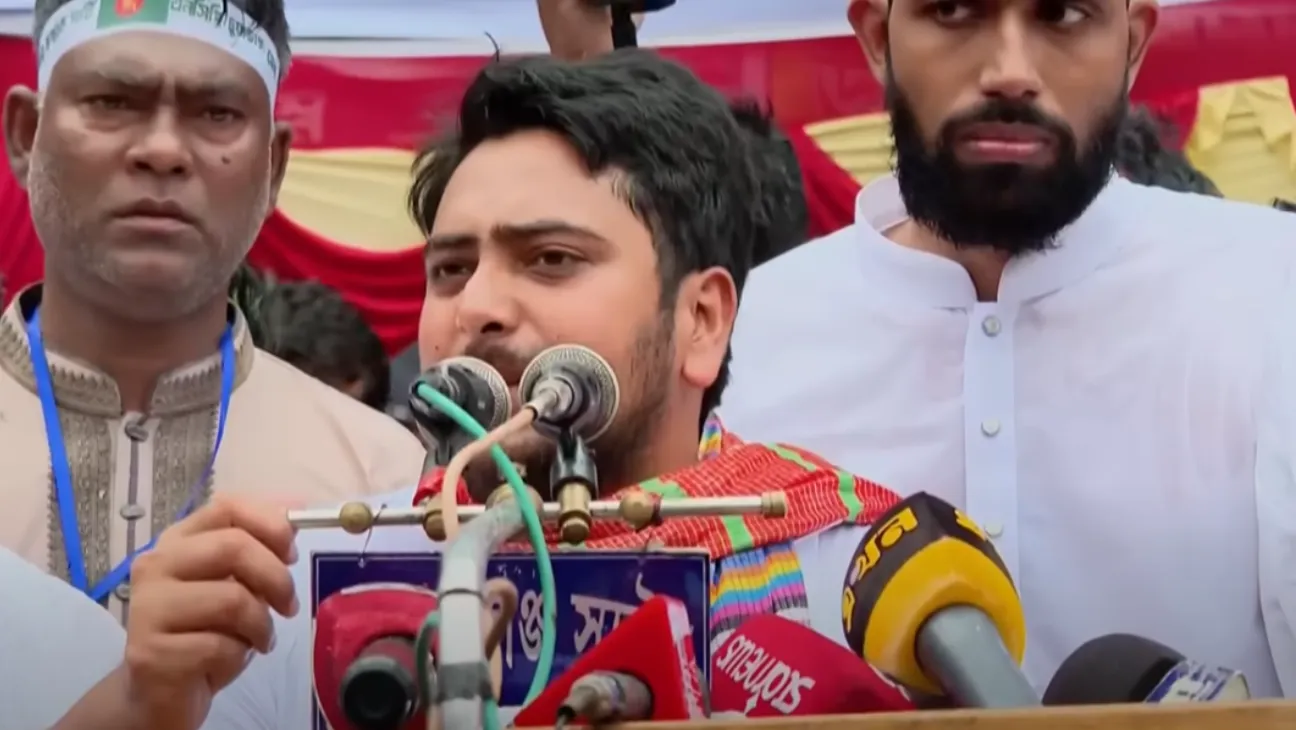National Citizen Party (NCP) convener Nahid Islam said on Wednesday that the youth of Bangladesh will no longer tolerate political dominance, while reiterating that his party is committed to acting responsibly in a changing political landscape. (Also Read: Bangladesh Urges India to Extradite Sheikh Hasina After BBC Investigation)
He made the statement during a roadside rally in Chuadanga, marking the ninth day of the NCP’s “July March to Build the Nation” campaign.
Harsh Words for India and Sheikh Hasina
In his speech, Nahid Islam accused India of fostering long-standing political interference in Bangladesh. He claimed that Sheikh Hasina ordered the shooting of civilians and that India is now providing refuge to those responsible.
“For the past 54 years, Indian imperialism has oppressed the people of Bangladesh,” he said. “It was Sheikh Hasina who gave the order to open fire, and it is India that sheltered the killers. India must not forget that it is also dependent on Bangladesh.”
Push for New Constitution and Electoral Reform
NCP Member Secretary Akhtar Hossain called for a new constitution as a prerequisite for any Constituent Assembly election.
“No Constituent Assembly election is possible without drafting a new constitution,” he said. “The leaders of this uprising want to take the country in a new direction.”
He also addressed India directly. “We want to tell the Indian government that it must remain accountable to the people of Bangladesh. We say to the Modi government: return Sheikh Hasina.”
ALSO READ: Study Finds 57 Killed by Headshots During Bangladesh 2024 Protests
Warning Against Future Autocracy
Hossain added that the NCP would not allow another autocrat like Sheikh Hasina to rise again. He urged other political groups to adopt what he described as a “pro-Bangladesh” approach moving forward.
Background of the Movement
The “July March to Build the Nation” began earlier this week in Hatboalia, located in Alamdanga upazila of Chuadanga.
The campaign was launched on Tuesday with a views exchange program involving local and central party members.
NCP leaders continue to position themselves as part of a broader movement challenging both domestic political structures and foreign influence in Bangladesh’s future.









